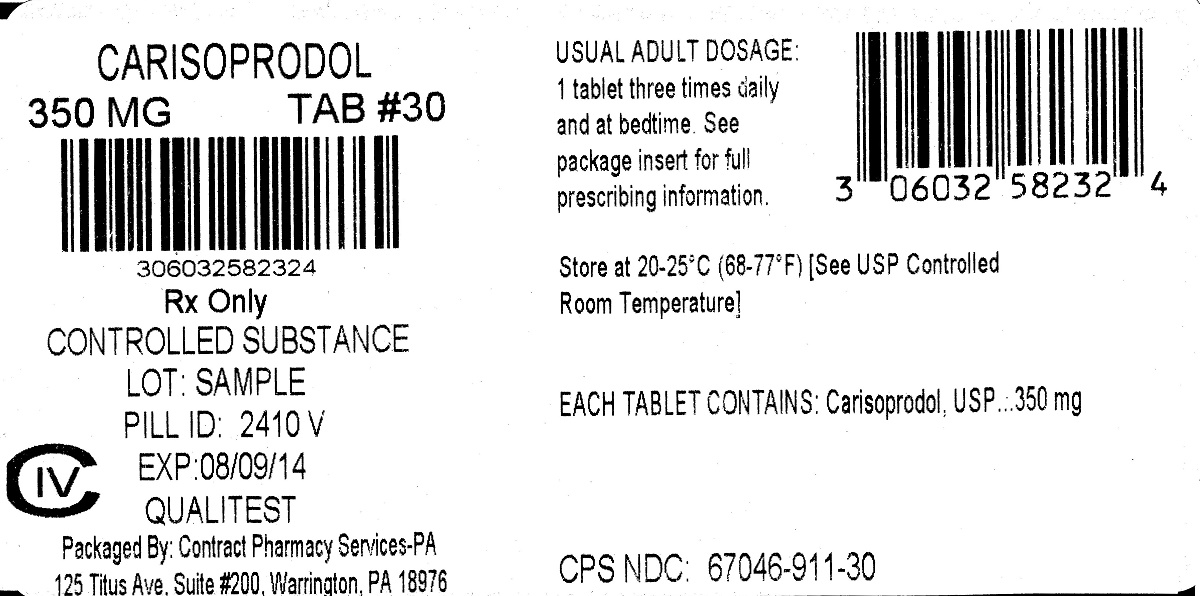
Carisoprodol Tablet while Breastfeeding
What is Carisoprodol Tablet used for?
Is Carisoprodol Tablet usage safe while breastfeeding? If a lactating mother is using it can there be any effect on growth or development of infant?

8.3 Nursing Mothers Very limited data in humans show that carisoprodol is present in breast milk and may reach concentrations two to four times the maternal plasma concentrations. In one case report, a breast-fed infant received about 4 to 6% of the maternal daily dose through breast milk and experienced no adverse effects. However, milk production was inadequate and the baby was supplemented with formula. In lactation studies in mice, female pup survival and pup weight at weaning were decreased. This information suggests that maternal use of carisoprodol may lead to reduced or less effective infant feeding (due to sedation) and/or decreased milk production. Caution should be exercised when carisoprodol is administered to a nursing woman.
Carisoprodol Tablet Breastfeeding Analsys
Carisoprodol while Breastfeeding
Low RiskCAS Number: 78-44-4
Skeletal muscle relaxant with sedative effects on the central nervous system. It is metabolized to meprobamate.Indicated on low back pain. It is excreted into breast milk in a clinically non-significant amount (Nordeng 2001, Bailey 2002, Briggs 2008) without problems being observed on infants whose mothers were receiving this medication, (Nordeng 2001), except for a mild sedation with higher maternal drug doses (Briggs 2008) .Plasma levels in the infant were undetectable (Briggs 2008). Carisoprodol use increases the risk of abuse and addictive behavior, intoxication and possible psychomotor impairment (Bailey 2002, EMA 2007) being such a reason to be withdrawn from the market in some countries. The European Medicines Agency (EMA) has recommended to withhold authorizations for marketing of medicines that contains Carisoprodol (EMA 2007, Reeves 2012, Bramases 2012). If administered during breastfeeding, it is advisable to use a minimum effective dose and monitor a possible sedation on the infant and an inadequate milk production (Sachs 2013).
Carisoprodol Tablet Breastfeeding Analsys - 2
Carisoprodol while Breastfeeding
CAS Number: 78-44-4
If carisoprodol is required by the mother, it is not necessarily a reason to discontinue breastfeeding. Slight sedation has occurred in a breastfed newborn infant who was exposed during pregnancy and lactation; sedation might be more pronounced in newborns who are exposed for the first time during nursing. Other agents may be preferred, especially while nursing a newborn or preterm infant, or when other drugs that can cause sedation are used simultaneously.
What should I do if I am breastfeeding mother and I am already exposed to Carisoprodol Tablet?
During whole lactation period you shall first discuss with your doctor and then together you shall decide whether you shall take that drug or not however if you have already taken Carisoprodol Tablet then you shall inform your doctor, But you should not be worried too much as Carisoprodol Tablet comes in category of low risk drug.
I am nursing mother and my doctor has suggested me to use Carisoprodol Tablet, is it safe?
Carisoprodol Tablet comes in category of low risk and if your doctor is aware that you are breastfeeding it should be ok to use
If I am using Carisoprodol Tablet, will my baby need extra monitoring?
Not much
Who can I talk to if I have questions about usage of Carisoprodol Tablet in breastfeeding?
US
National Womens Health and Breastfeeding Helpline: 800-994-9662 (TDD 888-220-5446) 9 a.m. and 6 p.m. ET, Monday through Friday
UK
National Breastfeeding Helpline: 0300-100-0212 9.30am to 9.30pm, daily
Association of Breastfeeding Mothers: 0300-330-5453
La Leche League: 0345-120-2918
The Breastfeeding Network supporter line in Bengali and Sylheti: 0300-456-2421
National Childbirth Trust (NCT): 0300-330-0700
Australia
National Breastfeeding Helpline: 1800-686-268 24 hours a day, 7 days a week
Canada
Telehealth Ontario for breastfeeding: 1-866-797-0000 24 hours a day, 7 days a week
